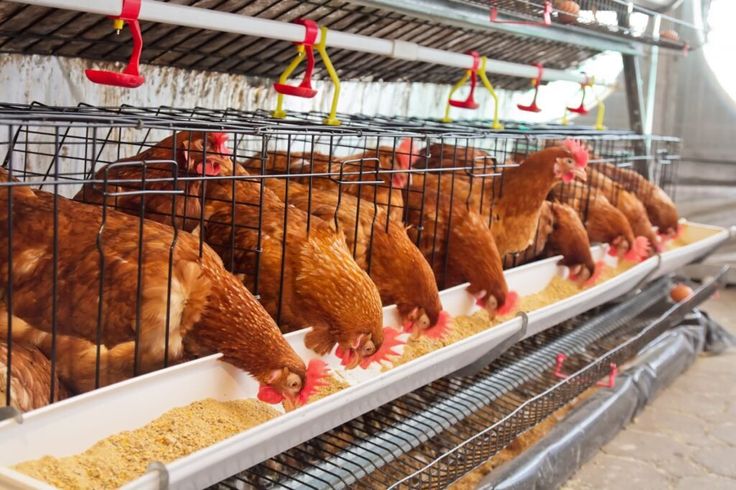Training and capacity building programs play a crucial role in equipping African poultry farmers with the knowledge and skills needed to improve their farming practices, increase productivity, and enhance the sustainability of their operations.
- Poultry Management: Provide training on poultry management practices, including breed selection, housing and equipment setup, flock health management, feeding and nutrition, and disease prevention and control. This training should cover both basic and advanced techniques to ensure farmers have a comprehensive understanding of effective poultry management.

- Biosecurity Practices: Educate farmers on the importance of biosecurity measures to prevent the introduction and spread of diseases on their farms. Training should cover topics such as farm layout design, quarantine procedures, proper cleaning and disinfection protocols, and pest control. Emphasize the significance of implementing biosecurity practices to protect the health and productivity of the poultry flock.

- Feed Formulation and Nutrition: Provide training on feed formulation techniques and nutritional requirements for poultry. This includes teaching farmers how to balance diets using locally available feed ingredients, understanding the nutritional needs of different poultry species and production stages, and optimizing feed conversion rates. Farmers should also be educated on the use of feed additives and supplements to enhance flock performance.

- Poultry Health Management: Offer training on poultry health management, focusing on disease identification, prevention, and treatment. This includes teaching farmers how to recognize common poultry diseases, implement vaccination programs, administer medications, and practice proper hygiene and sanitation. Training should also cover early disease detection techniques and the importance of regular flock monitoring.
- Record Keeping and Farm Management: Educate farmers on the importance of record keeping and farm management practices. This includes training on financial management, record keeping of expenses and income, production data tracking, and market analysis. Farmers should be encouraged to maintain accurate records to make informed decisions, monitor flock performance, and identify areas for improvement.

- Marketing and Value-Added Opportunities: Provide training on marketing strategies and value-added opportunities for poultry products. This includes teaching farmers how to identify and target market segments, develop branding and packaging strategies, and explore value-added products such as processed poultry meat, eggs, or poultry by-products. Farmers should also be educated on market trends, consumer preferences, and the importance of product differentiation.

- Climate Change Adaptation: Offer training on climate change adaptation strategies specific to poultry farming. This includes educating farmers on the potential impacts of climate change on poultry production, implementing climate smart practices, and adopting technologies that promote resilience. Training should also cover water management techniques, heat stress prevention, and energy efficient practices.
When you visit our company, we can help you to start by giving you all the necessary information you need to get started if not yet in the business. Please check our online shop, we have all the standard business proposals for different capacities at very a cheap price made by the best agricultural specialists as well as Standard design plans that are made by the best agricultural architects around the globe. please visit our online shop now using the links below to witness by yourself
Design plans (FARM HOUSE DESIGNS – Kimd Construction & Farm Consultants)
Business plans (BUSINESS PLANS & PROPOSALS – Kimd Construction & Farm Consultants)
Welcome back from visiting our shop, hope you have placed your order for any of our products or you can place it after navigating more of our informative articles.
So let’s continue with our article!
- Entrepreneurship and Business Skills: Provide training on entrepreneurship and business skills to help farmers establish and manage successful poultry enterprises. This includes teaching financial planning, market analysis, business plan development, and risk management. Farmers should be equipped with the knowledge and skills to make sound business decisions and effectively manage their poultry operations.
- Access to Resources and Technologies: Facilitate access to resources and technologies that can enhance poultry farming practices. This includes providing information on available grants, loans, or subsidies for poultry farmers, as well as connecting farmers with suppliers of quality inputs, equipment, and technologies.
- Training programs should also educate farmers on the effective use of technologies such as automated feeding systems, climate control systems, or data management tools.
- Networking and Collaboration: Encourage networking and collaboration among poultry farmers through training programs. This can be done through organizing farmer field days, workshops, or conferences where farmers can share their experiences, exchange knowledge, and learn from each other. Foster partnerships between farmers, industry experts, and research institutions to promote continuous learning and innovation in the poultry sector.
By implementing comprehensive training and capacity building programs that address these key areas, African poultry farmers can enhance their skills and knowledge, improve their farming practices, and contribute to the development of a sustainable and resilient poultry industry in Africa.
You can explore more about how to construct a raised standard Goat Structure.



